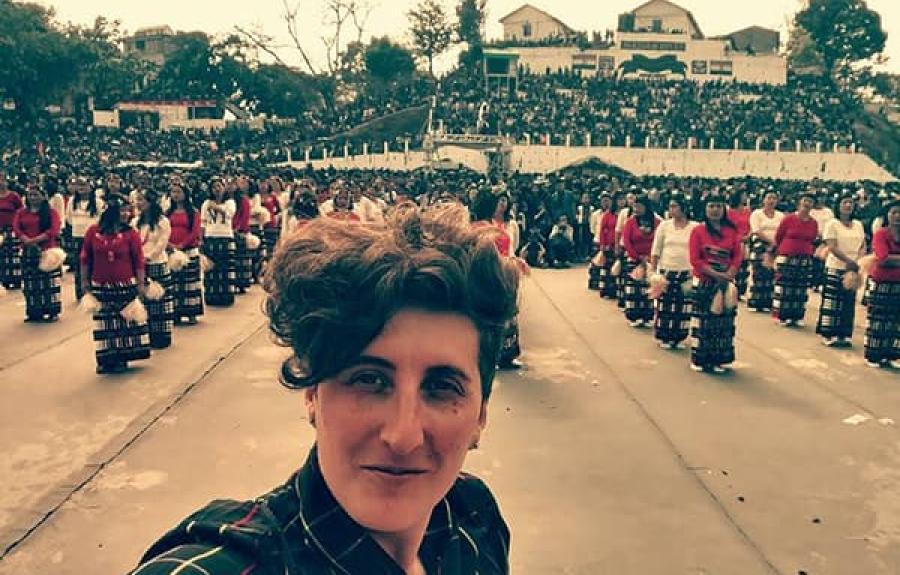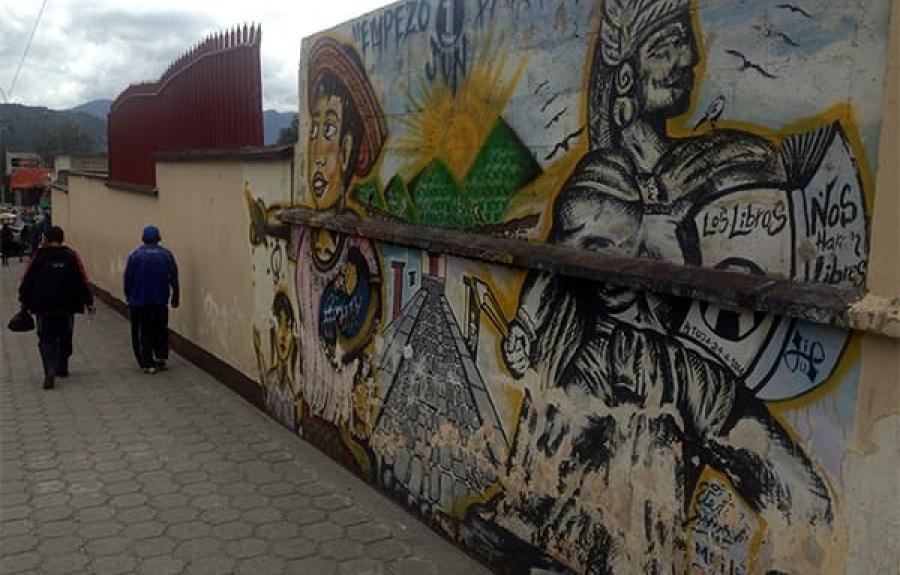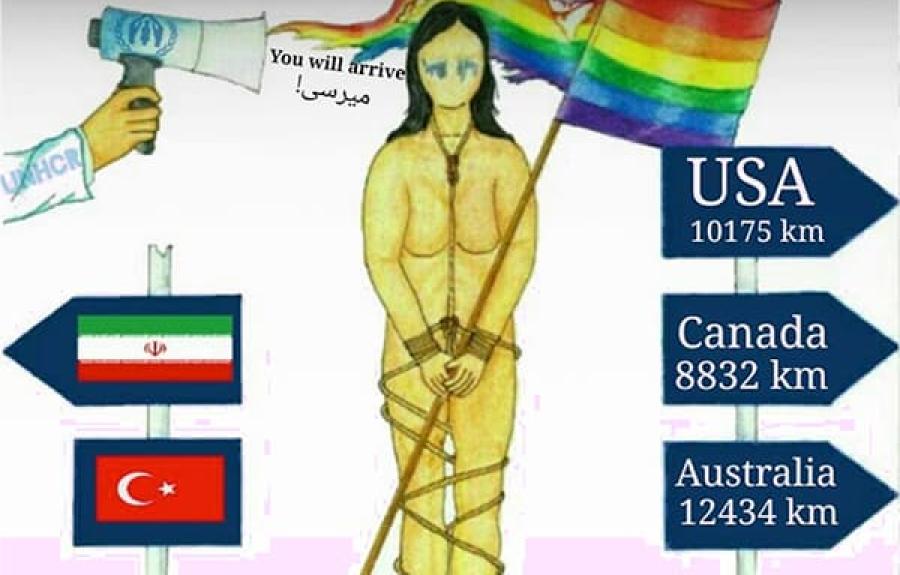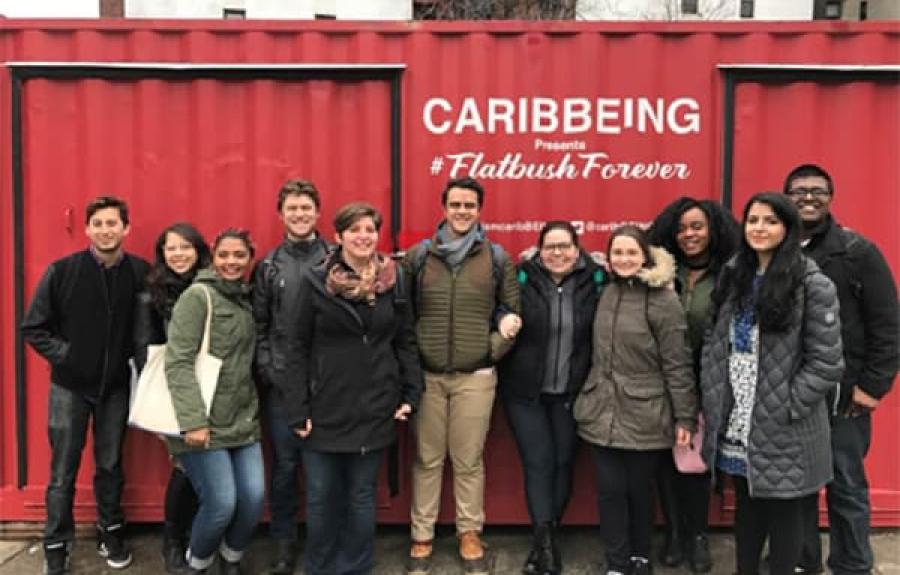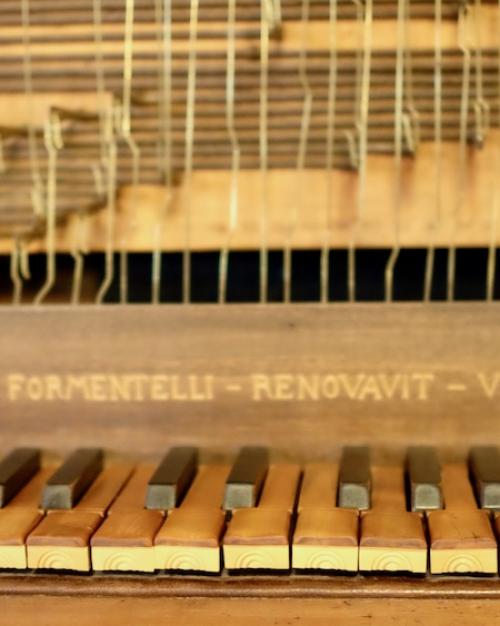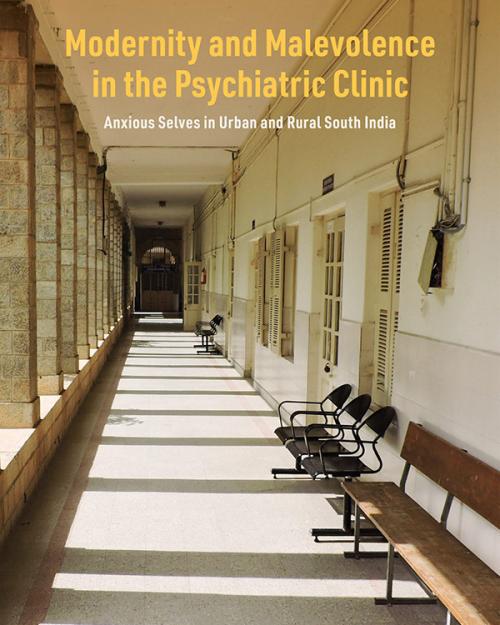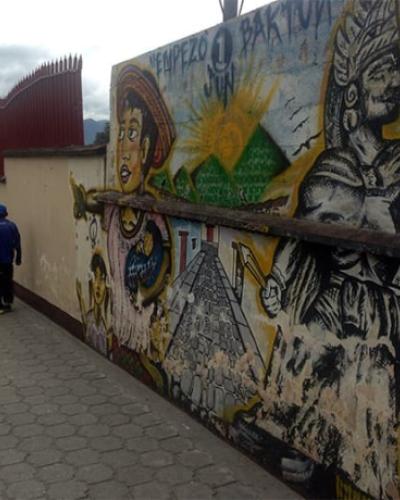Thanks to funding from Engaged Graduate Student Grants, PhD Candidates Mariangela Mihai, Amir Mohamed, and Elif Sari are able to dive deeper into research projects that help gain insights, produce and share educational materials, and examine how people make sense of their identities.
Mihai, Mohamed, and Sari were awarded Engaged Graduate Student Grants from the Office of Engagement Initiatives. Engaged Graduate Student Grants enable Ph.D. students to conduct research or scholarship that is community engaged or to develop strategies for incorporating community engagement into existing thesis work.
Mihai, Mohamed, and Sari provide descriptions of their projects below.
Mariangela Mihai
My ethnographic research project looks at Mizoram (a Northeast Indian state bordering Burma and Bangladesh) to examine how Mizos make sense of their identities through their interactions with the ethnically and morally “others.” The Young Mizo Association (YMA), a large scale civil society whose self-declared core responsibility is to uphold the Twaln Ngaihna (the unspoken law)—a combination of Christian-inspired ethics and pre-colonial Mizo moral codes—emerges as a central actor that shapes ideas of Mizoness. By looking at how YMA’s moral campaigns regarding miscegenation, the LGBTQ, alcohol, and drug addicts, the homeless, yogis, and sex workers lay at the center of contemporary Mizo-self articulation, the project asks: What kind of Mizo subjects and what kind of a Mizo nation does the YMA aspire to produce?
Amir Mohamed
This grant will be used for community-engaged, participatory research intended to intervene in the public memory of politics in Guatemala by supplementing entrenched narratives focused on violence and victimhood with alternative histories and geographies of struggle and aspiration. Current official school curricula in Guatemala represent the country’s majority indigenous and youth populations as passive and apolitical, and educators interested in developing and teaching alternative curricula confront a scarcity of pedagogical resources to assist in their endeavor. Through the organization of a Historic Memory and Pedagogy Working Group, this project will bring together students and scholars from Guatemala’s public university system to collaborate with local artists and the grantee, an anthropologist, in the production and dissemination of educational materials relating to elements of the country’s and region’s history that are currently suppressed or altogether omitted from current school curricula and other pedagogical contexts.
Amir is a doctoral candidate currently conducting fieldwork to investigate the role of murals in shaping how people imagine and practice democracy in urban Guatemala. His project aims to better understand how different groups of residents imagine, enact, and transform the socially constructed parameters of democratic citizenship. He is more broadly interested in moments and spaces of collective deliberation, when and where people articulate and contest different political cultures and public moralities; and in the ways that different social arrangements are afforded varying degrees of visibility, legitimacy, and mutability.
Elif Sari
"Collaborative Multimedia Project with LGBTI Refugees in Turkey" is a 12-month multimedia project, which I will carry out in collaboration with the Iranian LGBTI refugee community living in the city of Denizli, Turkey. Due to the discrimination and the abuse they experience in Iran, many lesbian, gay, bisexual, transgender, and intersex (LGBTI) individuals flee their home country and arrive in Turkey. They apply for asylum and wait in Turkey for one to three years until the United Nations High Commissioner for Refugees (UNHCR) that administer asylum claims resettles them in a third country such as United States and Canada.
The project involves training, production, and dissemination of: 1) a series of podcasts, 2) video and photo installations, and 3) an ethnofiction film titled Queer Baby, which explores the subtleties of transnational queerness. Employing these different artistic mediums (e.g. visual, sound, moving image), the project explores and portrays the subtleties of being an LGBTI refugee in a transition country like Turkey. The project is designed to promote LGBTI refugees’ active participation in cultural and artistic life; to raise awareness about their problems; and to produce and disseminate knowledge about legal, medical, and social issues that would greatly benefit LGBT refugees, who are denied access to reliable and transparent knowledge. Since exploring and portraying different aspects of LGBTI asylum lie at the core of this project, all suggested activities and final products are also intrinsic to and inseparable from my dissertation research and writing processes. The use of artistic mediums will allow me to gain new insights into my collaborators’ lives and experiences, which might not otherwise come to surface through my existing methodologies (i.e. interviewing and participant observation).
Elif Sari is a PhD student in Socio-Cultural at Cornell University. Her research interests include gender, sexuality, borders, immigration, asylum, and humanitarianism in the Middle East. She received her bachelor's degree in Political Sciences and International Relations at Boğaziçi University in Turkey, and her master's degree in Near Eastern Studies at New York University, where she studied the intersections on sexuality, law, and violence by examining LGBTQ asylum in Turkey. Her current research project explores the practices and processes of LGBTI asylum from the Middle East to the US and Canada via Turkey, as well as the lives and experiences of Middle Eastern queer refugees waiting in Turkey. She is Co-Editor of the Turkey Page at Jadaliyya e-zine.
Professor Oneka LaBennett , a member of the field of anthropology, also received an Engaged Opportunity Grant from Engaged Cornell. The grant was awarded to the team LaBennett will lead, comprised of community partner, CaribBEING ( a cultural/arts non-profit in Brooklyn), Elena Guzman (Ph.D. Candidate in ), and the students enrolled in LaBennett’s “Engaging NYC: Oral History and Ethnography” course. The funds will support a fieldwork immersion trip to Brooklyn, New York over Spring Break 2017, during which LaBennett’s class will learn ethnographic methodologies while recording the oral histories of Brooklyn residents from the Caribbean. The oral history interviews will be featured in an exhibition in New York City this spring. LaBennett’s course is cross-listed in Africana Studies, American Studies, and .

